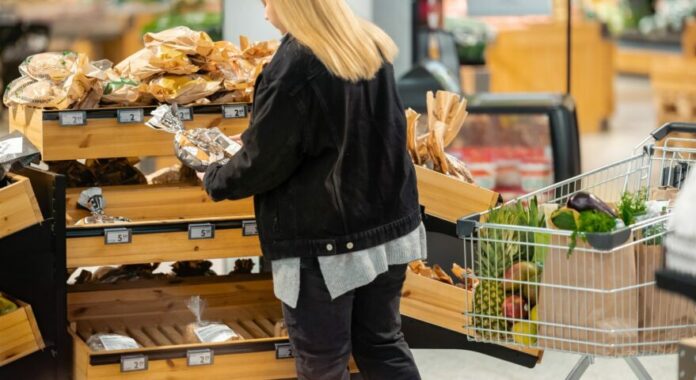Interest in organic food has remained unchanged among Finns even in difficult market conditions, according to a consumer survey commissioned by Pro Luomu in January 2024 (Kantar Agri).
Economies with small gross annual incomes of less than 20,000 euros are most interested in organic food. However, organic food is clearly bought the most in households with a gross income exceeding 85,000 euros per year. A good fifth of Finns still buy organic food weekly, and well over half buy organic food at least monthly.
“Generation Z is fundamentally aware, but awareness does not always – for economic reasons, for example – show up in consumption. Correspondingly, in the light of researched information, it is easiest for baby boomer women to consume sustainably: they are aware of what is sustainable and the choice of sustainable food products is even automatic for them. Their attitude towards choosing more sustainable food is possibly influenced by the fact that they lived in a less abundant time in the 1960s and 70s,” says VTT researcher Anu Seisto .
Anu Seisto has studied the consumption of generation Z and the consumer segments found in Finland.
“A large group of consumers has information, but hurry, money or the desire for convenience prevent consumption behavior in line with values. In order to make more responsible choices, one must be motivated to compare different food products. The everyday rush often prevents us from making more sustainable choices,” he says.
For the consumer, organic is a value choice, more awareness and availability are needed
Pro Luomu asked consumers who prefer organic in their everyday life, what makes them buy organic and why.
“I feel that income level, socio-economic status and, on the one hand, the availability of products determine the consumption possibilities of even conscious consumers. I buy at least eggs, milk, butter, wine, flour and flakes as well as organic fruits and vegetables. I can see that as my income level increases, I will buy even more organic food than now. The interest in organic products dates back more than a decade, but it is still not visible in all aspects in the shopping cart,” says 28-year-old Juuli Rantala from Kuopio.
“As a consumer, organic means to me, in addition to food, e.g. organic cosmetics and clothing purchases. I buy organic whenever I feel that buying it brings added value. As a rule, as a vegan, I buy, for example, all botanical products and all cosmetics organically. I have preferred organic even when I had a small income. It’s about values and what you want to use your money for. Pesticide residues should be talked about more so that people truly understand why organic can sometimes be a little more expensive. However, the price difference is very small if it is a more sustainable choice in terms of health and the environment,” says 35-year-old Mari Vänttinen from Jyväskylä.
“I get some organic food for home, but I could buy more. In my mind’s eye, Finnish food or food produced nearby also compete with organic food, which I easily like as clean alternatives alongside organic food – even though I know that organic food is cleaner and that organic food does not use pesticides. Additionally, availability varies; not all products are organic from the same store. It would be great if the selection of organic products increased, but it requires that we consumers also buy and ask for organic products from local merchants,” says 32-year-old Linda Hollo from Helsinki.
The Finnish origin of food and the freedom from antibiotics clearly rose to the highest esteem among Finns: according to a consumer survey, up to 61% of Finns consider these qualities important or very important. In terms of organic production, the corresponding share is 28%. Among young adults, the importance of being from home is less important than the rest of the population, and correspondingly, the importance of organic production is more important than the rest of the population. (Kantar Agri 2024.)
“Consumer behavior must change in a more sustainable direction. This means understanding how and where the food was produced. Emotions can sometimes be strong; organic food can be perceived as expensive, but this is not necessarily the case during the harvest season, for example. More communication and services, such as organic and local food bags and knowledge of harvest seasons, are needed to make sustainable consumption easier,” says VTT researcher Anu Seisto.
Also familiarize yourself with the extensive organic consumer barometer (Kantar Agri 2023)
The “On the way to a more sustainable Europe – Organic is part of the solution” campaign is an EU organic promotion project that communicates the benefits of organic to the environment and animal welfare in a new way. The project is implemented by Pro Luomu ry in Finland, Organic Sweden in Sweden, Bionext in the Netherlands and BioForum in Flanders, Belgium.
Funded by the European Union. The views and opinions presented are solely those of the authors of this text and do not necessarily reflect the position of the European Union or the European Research Executive Agency (REA). The European Union and the granting authority are not responsible for them.
The post Luonnonmukainen ruoka kiinnostaa eniten nuoria ja naisia – suomalaisten kiinnostus luomuun säilynyt ennallaan vaikeassa markkinatilanteessa appeared first on Pro Luomu.











